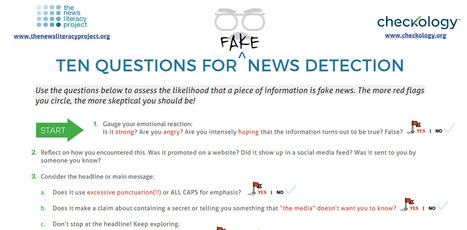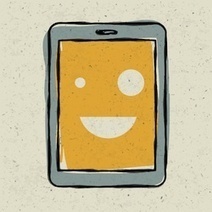"Fake" news has been in the news quite a bit, and this infographic provides 10 questions that will help students determine if the information is 'real' or 'fake'.
And if this is of interest to you, also check out the executive summary from Stanford Evaluating Information: The Cornerstone of Civic Online Information. The summary provides examples of assessments for middle school, high school, and college students.



 Your new post is loading...
Your new post is loading...









